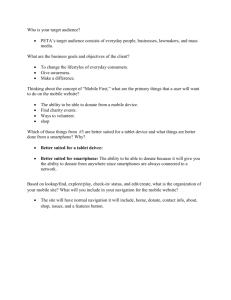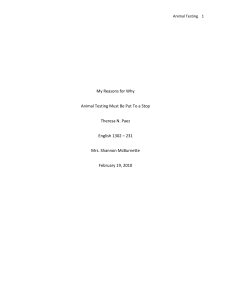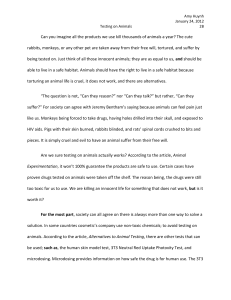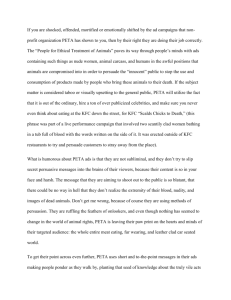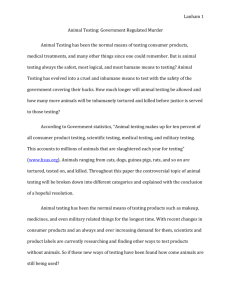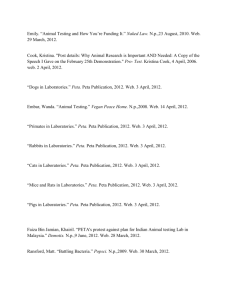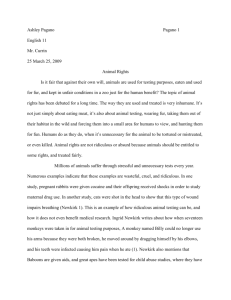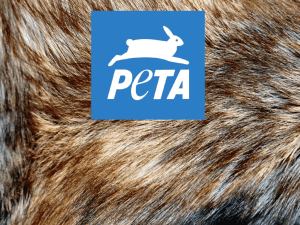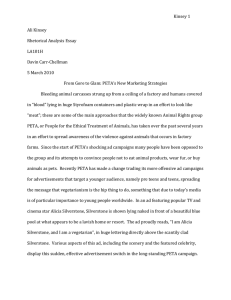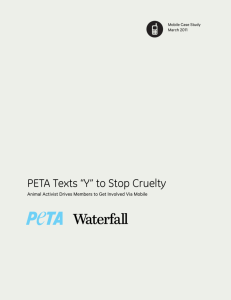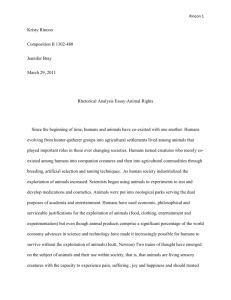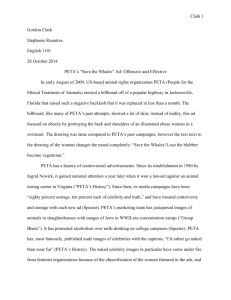PETA Approved, Audience Approved.
advertisement
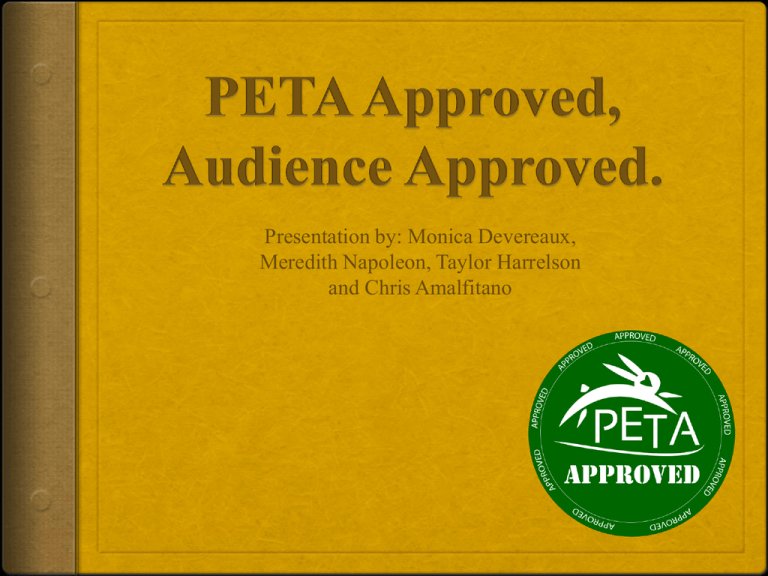
Presentation by: Monica Devereaux, Meredith Napoleon, Taylor Harrelson and Chris Amalfitano Client Background People for the Ethical Treatment of Animals (PETA) Based in Norfolk, Va. The largest animal right organization in the world, with more than three million members and supporters Mission: Focus on the four areas in which the largest numbers of animals suffer the most intensely for the longest periods of time. Factory farms, in the clothing trade, in laboratories and in the entertainment industry. Why was PETA founded? Founders sought to give caring people something more that they could do and to provide them with ways to actively change society Promote a healthy vegan diet Show how easy it is to shop cruelty-free They wanted to protest, loudly and publicly, against cruelty to animals in all forms Wanted to expose what really went on behind the very thick, soundproof walls of animal laboratories. Popular Campaigns I’d Rather Go Naked Than Wear Fur Bethenny Frankel, Steve-O and Khloe Kardashian. Targeted Campaigns Vegan Food Industry Murder King Kentucky Fried Cruelty McCruelty: I’m Hatin’ It SWOT Analysis Strengths Largest animal rights organization in the United States. Media Presence Celebrity Use and Publicity SWOT Analysis Weaknesses The organization relies on shock tactics rather than communicating their actual mission and goals to the public. Controversial campaigns and protests Targeting different audiences with the same tactics SWOT Analysis Opportunities A 2012 study by the Vegetarian Resource Group found that 2.5 percent of the country identified themselves as “vegan,” up from 1 percent in 2009. A 2013 article in the Huffington Post explains the increased interest. Horse meat scandal overseas sparked public outrage, leading to a sales increase of meat-free products. The explosion of vegan celebrities. Recent studies showing the beneficial health effects Decreasing meat consumption is beneficial for the environment. SWOT Analysis Threats Radical supporters of PETA can drive away potential supporters Celebrities that were targeted by PETA can retaliate through the media Founded in 1980, PETA has developed a reputation that may be hard to change in the public domain. The Plan Rebranding Campaign Striving to be helpful to the public, not forceful. Open communication to reflect the new approaches Changing PETA’s reputation in the public domain by creating a new image Tactics New Logo PETA Approved, Audience Approved. PETA’s seal of approval will help shoppers live a healthier life. News Releases embrace the change and reflect on the new approaches Social Media to reach a wide audience of all demographics Facebook Twitter Pinterest Blogs The “New” PETA The Logo PETA Approved, Audience Approved. Social Media News Release Facebook Twitter Pinterest Themed Blogs Celebrity Blogs Flyer Evaluation New Logo Word-of-Mouth within the target industries Changed opinion surveys on the logo, brand recognition. PETA Approved, Audience Approved. Local and national tracking of the presence. Quantitative research on the sealed items sold. Room for improvement? Does the public need more information? News Releases Tracking the coverage of PETA’s rebranding Keeping an open relationship with journalists and media workers through follow ups. Social Media Klout Open relationship with the audience by responding to feedback, encouraging comments and posting regularly Track the amount of likes, comments and shares received Which social media outlet is the most efficient?
